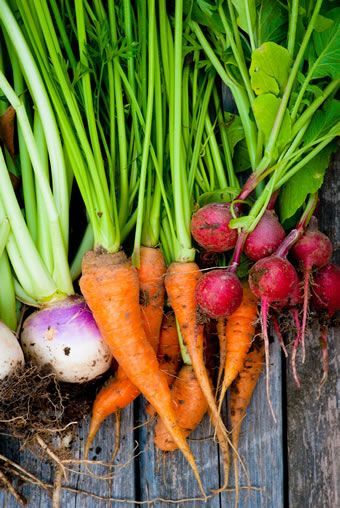It’s common knowledge that a healthy intake of fresh fruits and vegetables may reduce the risk of developing type 2 diabetes. A recent prospective study and meta-analysis takes this piece of advice one step further, claiming that a specific type of produce may take the (sugar-free) cake when it comes to diabetes prevention.
Data gathered from a sub-cohort of participants in the EPIC-InterAct (European Prospective Investigation into Cancer-InterAct) study were used to evaluate the efficacy of various kinds of fruits and vegetables in protecting against diabetes. The sub-cohort included over 16,000 participants across eight different European countries with large variation in produce consumption.
 While a higher total fruit and vegetable intake in general showed a weak inverse relationship with diabetes, certain fruit and vegetable subtypes appear to provide strong protection against the disease.
While a higher total fruit and vegetable intake in general showed a weak inverse relationship with diabetes, certain fruit and vegetable subtypes appear to provide strong protection against the disease.
Of all the subcategories of produce reviewed, only root vegetables– including carrots, radishes, salsify, beets, turnips, celeriac, and swede (aka rutabaga or Swedish turnip) – displayed an inverse association with diabetes (Cooper, et al. 2012. Eur J Clin Nutr. 66(10): 1082–1092).
Notably, the authors excluded potatoes and other starchy tubers not only from the “root vegetable” category, but also from the analysis entirely, “since they differ from vegetables regarding energy and carbohydrate content.”
This finding echoes a previous EPIC cohort report, which showed a correlation between high root vegetable intake and decreased pancreatic cancer risk (Vrieling, et al. 2009. Int. J. Cancer. 124: 1926–1934).
The diabetes-fighting nutritional properties of specific root vegetables are well documented in the literature. Carrots contain major antioxidants like vitamin C, E, and beta-carotene, which are believed to stave off diabetes by reducing oxidative stress (Song, et al. 2009. Am J Clin Nutr. 90(2): 429-437).
Nitrate-rich vegetables like beets provide known blood pressure-lowering effects (Hobbs, et al. 2012. Br J Nutr. 108(11): 2066-74).
It is not yet clear, however, why root vegetables on the whole may offer better protection against diabetes than other veggie types.
Following their initial review of the EPIC data, the authors included their new data in an updated meta-analysis of published literature on fruit and vegetable intake and diabetes risk.
They found that green leafy vegetables (including spinach, chard, endive, lettuce, borage, watercress, and beet greens) appear to provide protective benefits against diabetes, while other fruit and vegetable subtypes do not.
Ultimately, the authors conclude that, “specific groups of vegetables, principally green leafy vegetables and root vegetables, may be beneficial in preventing diabetes.”
Until further research determines if and why some veggies are better diabetes defeaters than others, those at risk may be best served by consuming plenty of roots & leaves.
END
Kristen Schepker holds a Master’s degree in Integrative Health Studies from the California Institute of Integral Studies. She is a certified yoga instructor and holistic health and wellness coach practicing in San Francisco, CA.







